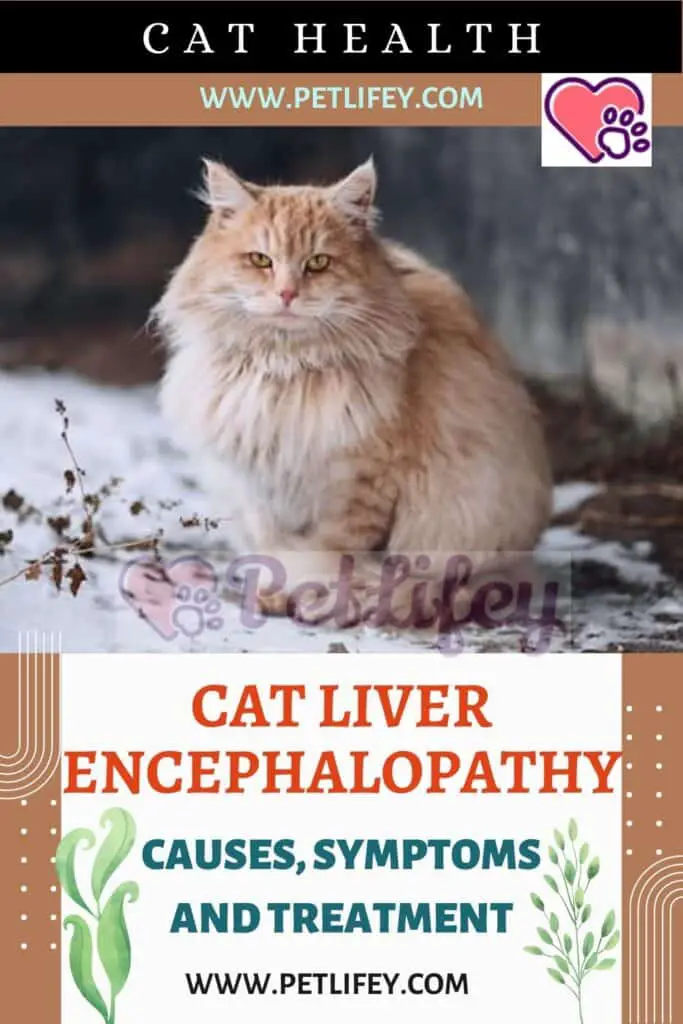
Hepatic encephalopathy is a serious disease that can affect the liver, endangering the life of the cat: let’s find out everything there is to know about this disease.
Hepatic encephalopathy in cats causes an abnormality in the animal’s metabolism. The liver, in fact, is not able to eliminate toxic substances for the organism of the cat, which are reabsorbed by the intestine. What is caused, what are the symptoms and how is it diagnosed and treated? Let’s answer these questions together.
Hepatic encephalopathy in cats: what it is and what are the causes
As we have seen, when the cat is affected by hepatic encephalopathy it is unable to dispose of toxic substances.
They then re-enter your body through the intestine, increase in the blood and attack the cerebral cortex. Unfortunately, the causes of this disease are not known to date.
Gastrointestinal toxins originate from the bacterial digestion of proteins and their by-products. Among these, the most common is represented by ammonia.
Generally, it is a chronic non-resolving condition. In some cases, however, the cat can be prey to an acute crisis, due to:
- Dehydration;
- Constipation;
- Taking medications;
- Infections;
- Gastrointestinal bleeding;
- Abundant protein meal.
Clinical signs of the disease: how to spot it
Hepatic encephalopathy is a life-threatening condition of the cat.
For this reason, identifying it in time is essential to ensure the well-being of our four-legged friend. How does this disease manifest itself? The main symptoms presented by the animal are behavioral disturbances and neurological problems:
- Agitation;
- Aggression;
- Head-pressing , i.e. when the cat presses its head against the wall or another object, for no apparent reason that could explain its attitude;
- Circling, that is when the cat turns in circles;
- Tremor;
- Loss of coordination in the cat
- Excessive salivation;
- Loss of vision.
Other warning signs of liver malfunction include increased urination and thirst, as well as blood in vomit and stool. The cat, in fact, could have blood clotting disorders.
If the cat exhibits one or more of the symptoms listed above, the best advice is to contact the veterinarian, who will be able to confirm the diagnosis or identify the presence of diseases with similar symptoms.
Diagnosis and treatment of hepatic encephalopathy in cats

How is hepatic encephalopathy diagnosed in cats?
After a thorough examination, the veterinarian will subject the animal to blood analysis and urinalysis in the cat, as well as specific laboratory tests aimed at identifying the presence of the disease.
As we have anticipated, unfortunately there is currently no cure for hepatic encephalopathy.
In the case of a chronic disorder, the first goal will consist in lowering toxins in the intestine, through a specific diet, characterized by a reduced intake of proteins.
Among these, those of milk, eggs, or vegetables should be preferred, as they are more easily digestible and have a high biological value. In addition, the following drugs and supplements will need to be given to the cat:
- antibiotics, against the bacteria responsible for the production of urea and ammonia;
- lactulose, responsible for accelerating intestinal transit;
- Vitamins A, B, C, D, E, K.
If, on the other hand, an acute crisis occurs, the animal must be immediately taken to the veterinarian, who will proceed with the administration of intravenous therapies, antibiotics and enemas.






